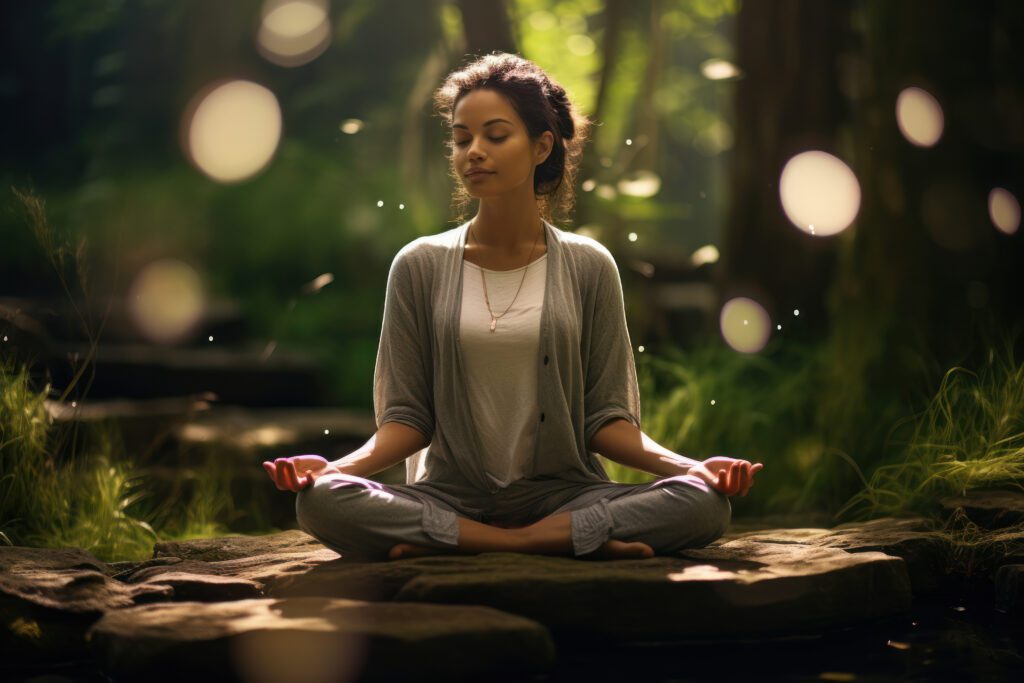Sometimes, all we need to feel more connected to ourselves and the world at large is to take a walk outdoors. Nature is one of the most accessible holistic remedies; extensive evidence of its healing powers suggests that humans should get outside as often as possible.
Why Being in Nature Is Good for You
Think back to the pandemic lockdown, when even the shortest walk outside improved your whole outlook. Breathing fresh air without a mask, taking a break from electronic devices, maybe finding some clarity in your thoughts and feelings…all of these tangible benefits had an immediate effect on your psyche. But as invigorating as they were then, they actually occur anytime you’re enjoying the natural world.
The American Psychological Association (APA) lists three key points, which we list verbatim:
- Spending time in nature is linked to both cognitive benefits and improvements in mood, mental health and emotional well-being.
- Feeling connected to nature can produce similar benefits to well-being, regardless of how much time one spends outdoors.
- Both green spaces and blue spaces (aquatic environments) produce well-being benefits. More remote and biodiverse spaces may be particularly helpful, though even urban parks and trees can lead to positive outcomes.
Studies indicate that even five minutes a day makes a difference. So what might you notice if you’re outside longer and more regularly?
- Greater calm. Researchers examined study participants’ stress levels after walking urban streets vs. nature paths. People in nature settings displayed considerably reduced anxiety and stress, lower cortisol levels and heart rates, and also demonstrated more rapid recovery from stressors.
- Decreased anxiety, “brooding”, and depression. Experts note that rumination—a tendency to fixate on negative emotions, memories, and thoughts—is frequently a precursor to depressive episodes. Rumination also increases frustration, siphons away motivation, and keeps people from engaging in positive social networks. But studies suggest that when we go outdoors for about 30 minutes daily, it prompts “increased activity in the prefrontal cortex,” which generates more positive thoughts and enhances mood.
- Better focus. Spending a lot of time on devices creates more mental fatigue. However, when you spend time outside, especially devoted to some form of exercise, you achieve “attention restoration”—which researchers state improves creativity, learning ability, and problem-solving skills.
- Reduced pain. Human beings are naturally drawn to those green and blue spaces APA mentions. Frequent interaction helps lessen inflammation and perceptions of pain—so much so, many hospitals are modeled after “biophilic designs” to include artwork with nature scenes, more live plants and natural light in rooms and common spaces, and indoor and outdoor gardens and water features.
- Heightened wonder or awe. Results from a 2012 study revealed that being in nature helps magnify our sense of wonder, providing an opportunity to be more in tune with the entire world and care for something larger than yourself. When many people feel disconnected, the great outdoors helps provide a bridge to a better community.
All of these factors are especially important to people in recovery looking for new ways to manage triggers effectively.
The Rise of “Ecotherapy”
The impact of nature is so strong that psychotherapists are trying to develop more evidence-based methods of using it for healing. The APA cites a few examples:
- “Psychologists are increasingly interested in walking therapy, in which they take their clients outside for fresh air and exercise during therapy,” the organization states.
- Additionally, some professionals use the foundation of a respect for nature as the pivotal point to improve your life. For instance, the APA highlights psychotherapist Ryan Reese. Together with his colleagues, he developed a program called “EcoWellness, defined as respect, appreciation and awe of nature resulting in feeling connected and experiencing wellness.”
- Other therapists try to encourage patients to simply get outside more and do something they love. One therapist states, “There’s a common process where people lose connection with nature as they take on more adult responsibilities. As psychotherapists, it’s important to recognize the value of nature when we’re establishing therapeutic goals with our clients.”
So what would ecotherapy look like for you? What outdoor activity or interaction has the most meaning for you? Whether you explore this idea on your own or with professional guidance, you’ll be setting yourself on a path to greater wellness.
Find Your Calming Place at Fair Oaks
Our residential and outpatient services facility in Sacramento is near many wondrous places, including the American River, Stone Lakes National Wildlife Refuge, and Cosumnes River Preserve. We want to encourage every opportunity for natural healing as possible, and that includes offering you both traditional and holistic therapies to support your whole-person recovery process.



